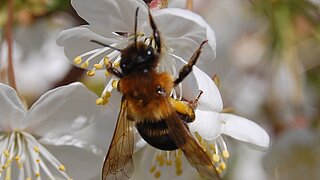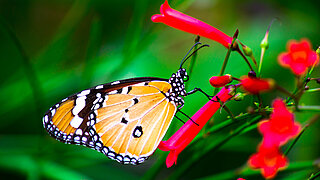Sustainable agriculture and pollinator protection

Sustainable agriculture is a basic precondition for safeguarding global food security and health. Accordingly, projects of the International Climate Initiative (IKI) support approaches that have the double aim of conserving biological diversity while securing resilient and intact ecosystems. This work includes financing agroforestry systems such as the cultivation of coffee and cocoa, for example, which are more sustainable in ecological terms and more climate friendly than monocultures, and also offer communities a wide range of benefits.
Synergies between biodiversity, climate change mitigation and adaptation
In addition, IKI is also supporting measures to ensure the adaptability of the agricultural sector and its workers to ensure their livelihoods are safeguarded over the long term. These kinds of synergies between biodiversity, climate action and climate adaptation make up an important part of preserving ecosystem services.
Insects are of existential importance for many agricultural products. Without their help as pollinators, neither fruit nor vegetables would grow. Pollinators also play a leading role in their ecosystems and are vital for the conservation of biodiversity, adaptation to the impacts of climate change and a wide range of ecosystem services. Unfortunately due to human activities such as the destruction of habitats and unsustainable agricultural practice, pollinator diversity is declining at a fast rate.
Measures that promote sustainable methods of production and highlight the value of pollinators and insects for relevant sectors provide long-term protection for these species and are therefore important IKI topics.
Selected projects
Funding area
The link has been copied to the clipboard



